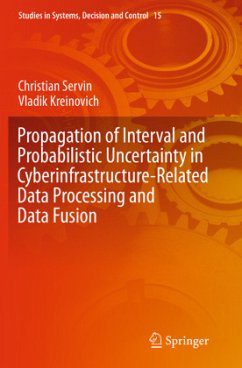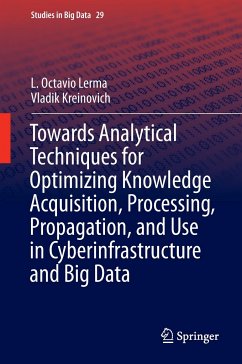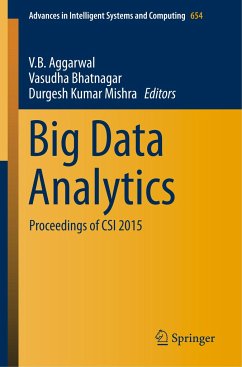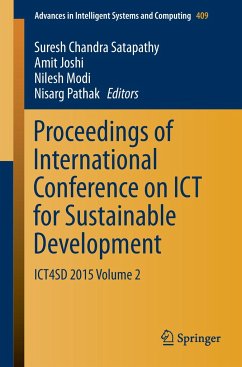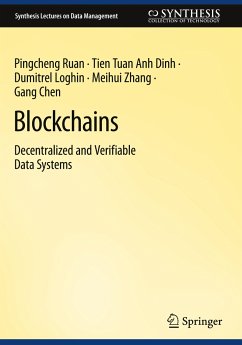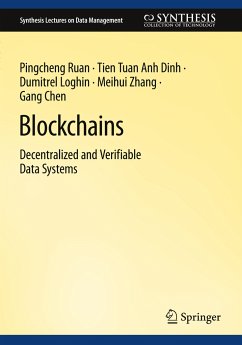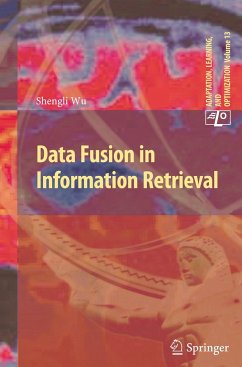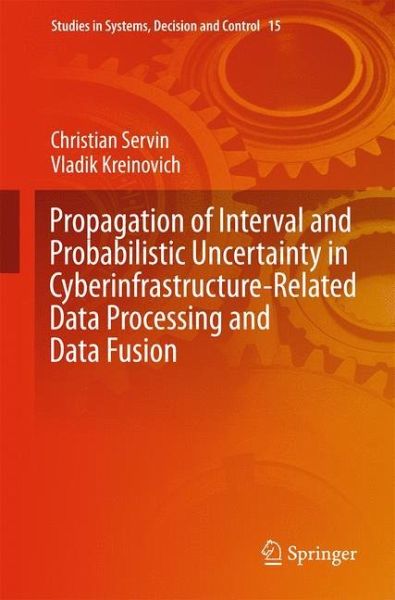
Propagation of Interval and Probabilistic Uncertainty in Cyberinfrastructure-related Data Processing and Data Fusion
Versandkostenfrei!
Versandfertig in 6-10 Tagen
76,99 €
inkl. MwSt.
Weitere Ausgaben:

PAYBACK Punkte
38 °P sammeln!
On various examples ranging from geosciences to environmental sciences, thisbook explains how to generate an adequate description of uncertainty, how to justifysemiheuristic algorithms for processing uncertainty, and how to make these algorithmsmore computationally efficient. It explains in what sense the existing approach touncertainty as a combination of random and systematic components is only anapproximation, presents a more adequate three-component model with an additionalperiodic error component, and explains how uncertainty propagation techniques canbe extended to this model. The book p...
On various examples ranging from geosciences to environmental sciences, this
book explains how to generate an adequate description of uncertainty, how to justify
semiheuristic algorithms for processing uncertainty, and how to make these algorithms
more computationally efficient. It explains in what sense the existing approach to
uncertainty as a combination of random and systematic components is only an
approximation, presents a more adequate three-component model with an additional
periodic error component, and explains how uncertainty propagation techniques can
be extended to this model. The book provides a justification for a practically efficient
heuristic technique (based on fuzzy decision-making). It explains how the computational
complexity of uncertainty processing can be reduced. The book also shows how to
take into account that in real life, the information about uncertainty is often only
partially known, and, on several practical examples, explains how to extract the missing
information about uncertainty from the available data.
book explains how to generate an adequate description of uncertainty, how to justify
semiheuristic algorithms for processing uncertainty, and how to make these algorithms
more computationally efficient. It explains in what sense the existing approach to
uncertainty as a combination of random and systematic components is only an
approximation, presents a more adequate three-component model with an additional
periodic error component, and explains how uncertainty propagation techniques can
be extended to this model. The book provides a justification for a practically efficient
heuristic technique (based on fuzzy decision-making). It explains how the computational
complexity of uncertainty processing can be reduced. The book also shows how to
take into account that in real life, the information about uncertainty is often only
partially known, and, on several practical examples, explains how to extract the missing
information about uncertainty from the available data.




